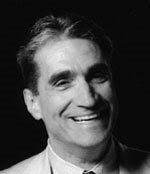A post from Ann Bogle's blog, Ana Verse, caught my eye this morning. The post, dated October 2, 2008, features what look to me like journal entries from 1994. Some of the journal entries refer to the journalist's writings from 1985. Here is an excerpt:
January 28, 1994
Ideas are unspeakable only if they are seen to impinge on the fantasies of others. Meaning is in the making, but we also make meaning a habit. I am not thinking here of commonplace meaning: a car equals a car. I am thinking of what happens when language ropes a life. We attribute metaphor to language, yet among writers, some writers, life is lived by the book. A representational word (car, wind, drink) gets carried away into life. It refers to you, your mother, your mania, your sex. In its broader manifestations, meaning leads to a dangerous wholeness that some writers check with fragmentation and polity. The writer may want to protect or change the world but is confined to an acquiescent resistance to fascism. Resisting fascism, the whole of it, requires acknowledging that part that is in us.
Read the full entry at Ann's blog.
Ann's post is titled "Conditions of a Narrator" and takes up consideration of life as it is lived and life as it is imagined in writing. It may seem like an elaborate intellectual exercise, but the post returns again and again to the notions of assertiveness, self, aggression, violence, possibility and community. These are notions any reader may benefit from (including readers of poetry) and that is why I wanted to share this here.
January 28, 1994
Ideas are unspeakable only if they are seen to impinge on the fantasies of others. Meaning is in the making, but we also make meaning a habit. I am not thinking here of commonplace meaning: a car equals a car. I am thinking of what happens when language ropes a life. We attribute metaphor to language, yet among writers, some writers, life is lived by the book. A representational word (car, wind, drink) gets carried away into life. It refers to you, your mother, your mania, your sex. In its broader manifestations, meaning leads to a dangerous wholeness that some writers check with fragmentation and polity. The writer may want to protect or change the world but is confined to an acquiescent resistance to fascism. Resisting fascism, the whole of it, requires acknowledging that part that is in us.
Read the full entry at Ann's blog.
Ann's post is titled "Conditions of a Narrator" and takes up consideration of life as it is lived and life as it is imagined in writing. It may seem like an elaborate intellectual exercise, but the post returns again and again to the notions of assertiveness, self, aggression, violence, possibility and community. These are notions any reader may benefit from (including readers of poetry) and that is why I wanted to share this here.



















